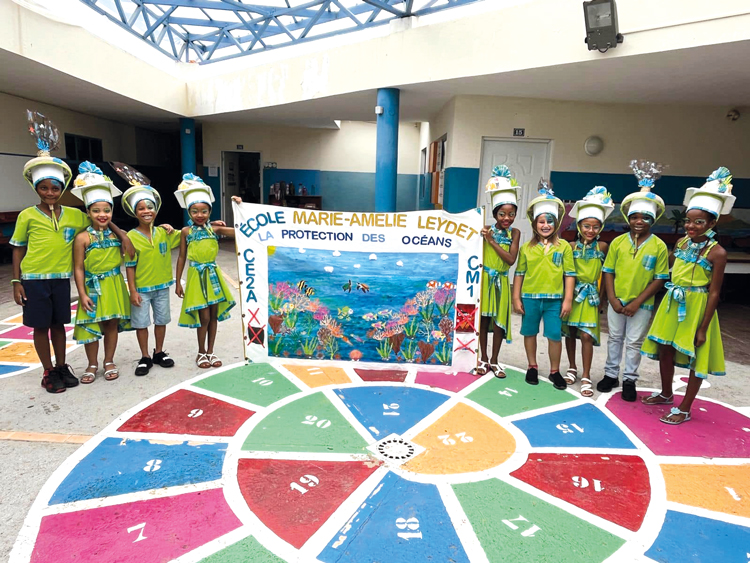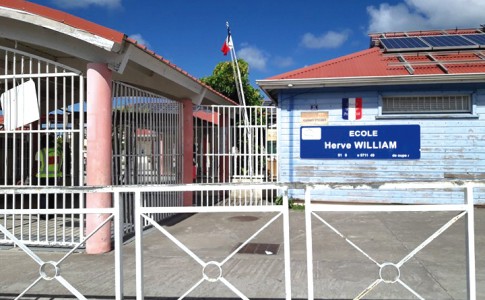On the occasion of the 2024 carnival festivities, the Marie-Amélie Leydet school wanted to raise awareness among the population about the protection of the oceans.
Each of the teachers who participated in this project in connection with the school project chose to work on different elements in order to represent the diversity of this theme: the protection of the oceans, marine animals, algae and jellyfish...
To carry out this project, Ms. Jasmin's CE2A students used recycled materials and natural elements such as polystyrene, plastic cans, sand, shells, etc.
This multidisciplinary project on the protection of the oceans (linked to the interventions of the Saint-Martin Nature Reserve and the Saint-Martin Water and Sanitation Establishment) allowed them to reinvest their learning, particularly by using the compasses, by drawing strips for the hats... Bravo for this great initiative during the parade on Friday February 9, 2024 in the presence of accompanying students, teachers and parents.
Oceans and seas cover 70% of our planet and represent 97% of the water on Earth
Oceans and seas represent more than 2/3 of the earth's surface and 97% of available water. They are essential to global food security as well as human health. They are also the primary regulating factor of the climate, by absorbing part of the CO2 produced on Earth. In other words, the oceans and seas protect us.
For centuries, humanity has acted as if seas and oceans were inexhaustible resources, capable of feeding us and absorbing all our waste. But that's not the case. Faced with the inexorable destruction of our mangroves, seagrass beds, coral reefs and the damage to fish reproduction areas, the marine environment is threatened, but also the ecosystem services it provides, such as fishing resources.
The list of threats facing the ocean is limitless. Human activities generate multiple pollution – wastewater, pesticides, hydrocarbons and even plastics. In many of the world's seas, fish populations are overexploited by overfishing. The development of the blue economy, maritime traffic, offshore hydrocarbon exploitation and even aquaculture are creating new pressures on the marine environment.
The overall value of ocean heritage is estimated at 24 billion US dollars, a value incommensurate with those of the largest sovereign funds. From this point of view, France has a particular responsibility since it has the second largest maritime space in the world via the territories of its overseas territories. _AF
1,012 total views
























No comments